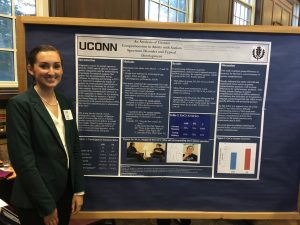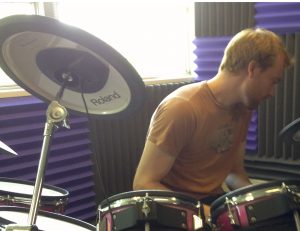 The research in our lab asks: How do autistic people learn and pay attention to language? Do underlying cognitive differences impact their language development?
The research in our lab asks: How do autistic people learn and pay attention to language? Do underlying cognitive differences impact their language development?
We can find answers to these questions by working with autistic children and adults to study the interactions between language learning and the developing brain. What we learn will also lead to better interventions.
Our lab is always looking for people with and without ASD to participate in research. It is the contributions of families, sharing their time and energy, that help us to understand the fascinating and complex process of language learning! To participate, visit this page.
 Current Research Projects
Current Research Projects
In the ASD Long-term Outcomes Study (ALTOS; NIMH R01MH112687-01A1), we are studying adolescents and young adults who met had autism early in development, but currently have no symptoms. In prior work, they appeared to use unique brain networks to achieve this particular outcome. Our study explores long-term ASD outcomes in adolescents and young adults. We evaluate how they navigate the difficult transition into independence and young adulthood; look for early childhood predictors of long-term outcomes; and investigate the functional connectivity of specific task-engaged social and language and resting-state networks, to specify the functional integration of the circuits involved in various long-term outcomes. For more information, check out our website. To get involved, contact our research coordinator at (860) 486-3085.
Ready to Connect (NIDCD 1R01DC021564-01)
Autism contains a puzzling conundrum: Although 70% of autistic individuals demonstrate age-appropriate language and cognitive abilities on standardized tests, they nonetheless experience significant communication challenges during everyday interactions. In this project, we study adolescents with and without autism, as they interact with peers. This NIDCD-funded study combines traditional standardized language tests with innovative psycholinguistic measures derived from spontaneous natural conversations to develop profiles of communication strengths and weaknesses that can be used to inform personalized interventions focused on improving conversational success. See this article in UConn-Today for more info.
Missed Cases project (NCHHD 1R01HD110140-01A1)
In collaboration with Diana Robins (Director of the AJ Drexel Autism Institute), we are studying the sensitivity of concurrent and prospective toddler screening for autism. Come back for more information about this recently funded study!
Low Verbal Investigatory Survey (eLVIS)
Our team is working to characterize the language profile of individuals with ASD who have minimal verbal skills. To learn more, click here, or check out our recent paper:
Naples, A., Tenenbaum, E. J., Jones, R. N., Righi, G., Sheinkopf, S. J., & Eigsti, I. M. (2022). Exploring communicative competence in autistic children who are minimally verbal: The Low Verbal Investigatory Survey for Autism (LVIS). Autism, 13623613221136657. https://doi.org/10.1177/13623613221136657
Adapting the ADOS-2 into ASL (project link)
Deaf autistic individuals with developmental disorders struggle to access appropriate diagnostic and evaluation services. The gold-standard diagnostic tool for autism is the Autism Diagnostic Observation Schedule (ADOS-2); in ADOS assessments, the examiner presents a series of social and communication prompts, and evaluates the social quality of responses to these prompts. The ADOS-2 is not adapted for use in American Sign Language; as a result, Deaf individuals receive delayed or incorrect diagnoses. The goal of this project is to adapt the ADOS-2 for ASL, with procedures that are aligned with Deaf cultural values and practices. This requires that ADOS-2 prompts account for the visual modality of ASL, in which differences in ASL production can act as ASD markers, and in which eye contact is critical for receiving linguistic information. This adaptation is not a simple process of translating the written sentences; it requires input from expert linguists, clinicians, and deaf signers. We are in the process of developing and testing the adapted ADOS-2 for ASL. Our project team includes Marie Coppola, Wyatte Hall, Deb Mood, Robert Nutt, Aaron Shield, and Kristin Walker.
Nonverbal Communication in Autism Spectrum Disorders
We know that spoken language is influenced by the kinds of gestures we make while speaking. While clinicians have long indicated that individuals with ASD gesture differently, there has been little research on gestures other than pointing. Our work examines the execution and timing of gestures (de Marchena & Eigsti, 2010), and how gestures influence both listeners and speakers.
Hyperlexia
In collaboration with Jim Magnuson, Elena Grigorenko, and Mikhail Kissine, our group is studying the neural and genetic correlates of hyperlexia (superior reading/decoding ability).
In collaboration with Prof. Ed Large, we are investigating performance, music appreciation, and both rhythmic and pitch processing. If you are interested in participating, please contact us!
